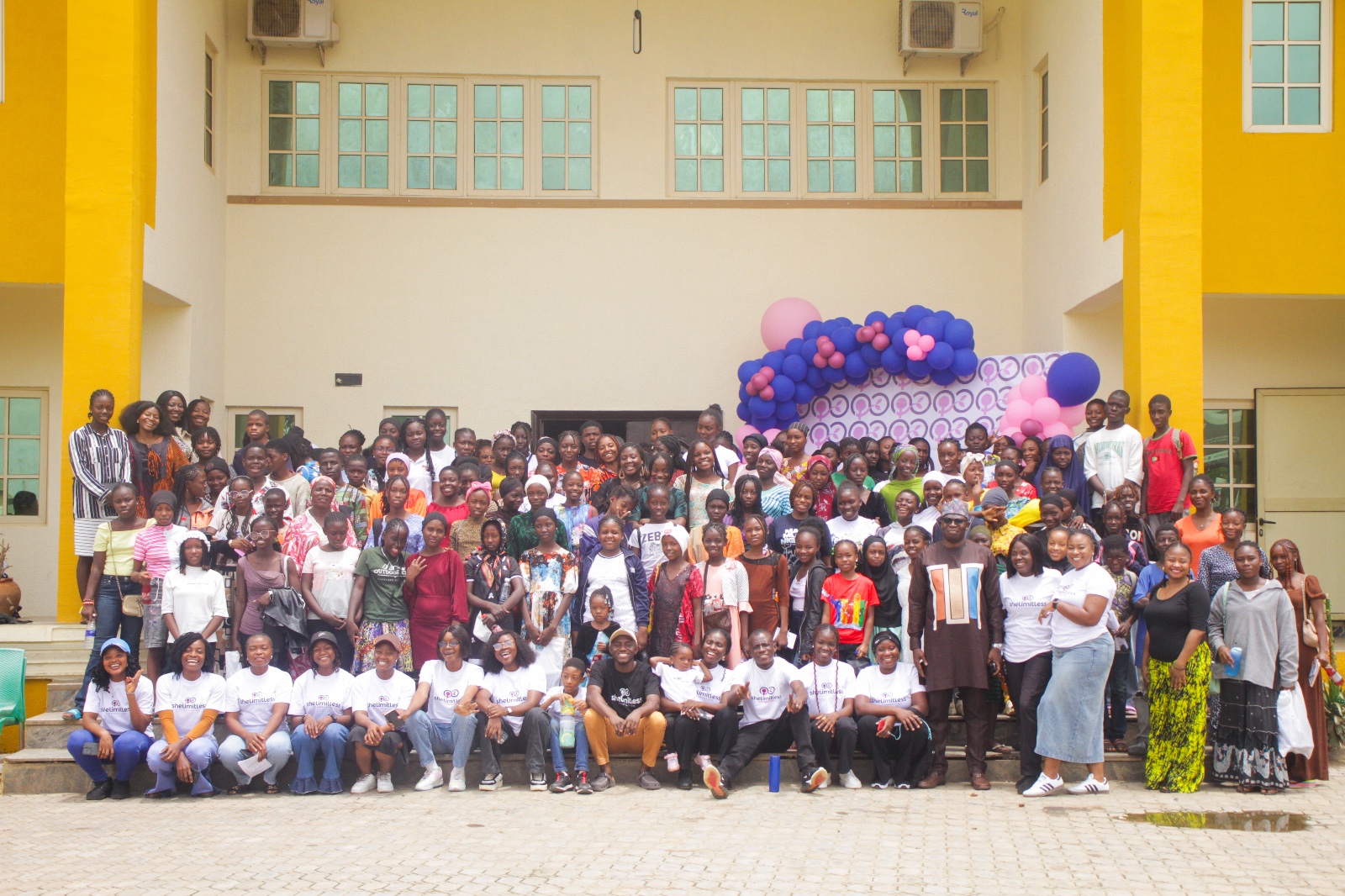The Director of News at Arise Television, Sumner Shagari Sambo, and the Founder of the Shelimitless Mentoring and Empowerment Foundation, Blessing Shemiye Narai, have called for urgent government and private sector intervention to address the deepening menace of drug abuse, prostitution, and school dropout among youths in Nigeria’s rural communities.
The call came during the foundation’s flagship seminar, “The Power of Choice,” which brought together dozens of young people from the Karu rural community in Nigeria’s federal capital city, for a day of mentorship, empowerment, and inspiration.
The event, which featured accomplished speakers across diverse sectors including journalism, law, entrepreneurship, tourism, fashion, and disability advocacy, sought to guide teenagers toward making intentional choices capable of reshaping their futures.
Addressing participants yesterday, Sambo, who also doubles as Chairman of the Karu Gbagyl Development Association, warned that Nigeria faces the risk of losing an entire generation to social vices if urgent measures are not put in place.
He lamented that many parents in rural communities remain ill-equipped to appreciate the value of education, a reality that continues to fuel the vicious cycle of poverty and vulnerability among young people.
Sambo said, “We must not lose our younger generation the way some of their parents missed out on education and opportunities.
“If we fail to act now, teenage pregnancies, drug abuse, and idleness will continue to produce young people who, instead of being assets to their communities, become threats to society.”
He called on government agencies, private organisations, and community leaders to increase investments in mentorship, education, and skill acquisition to keep teenagers meaningfully engaged.
Sambo said, “Let’s support initiatives like Shelimitless with resources and partnerships.
“It is not enough to ask children to stay in school; we must also provide them with alternatives such as vocational training, internships, and mentorship programmes that allow them to dream beyond their immediate environment,” Sambo urged.
For Blessing Shemiye Narai, who founded the Shelimitless Mentoring and Empowerment Foundation out of personal experiences of loss and hardship, the seminar was both personal and purposeful.
Growing up in the Karu rural community, Narai said she had witnessed first-hand the devastating consequences of teenage pregnancy, school dropout, and limited opportunities.
She said, “Despite losing my father at a young age, I chose to chart a different path,” a decision she described as “the power of choice.”
She said, “I want every young person to believe that their past does not define their future.
“We may not be able to solve all of Nigeria’s problems, but we can solve some, starting with our communities.
“Shelimitless is my contribution to inspire, mentor, and equip young girls, especially those who feel limited by their background, to see a different life ahead.”
Narai further appealed to government and corporate institutions to step in with investments in education, healthcare, and empowerment initiatives.
She insisted that leaving rural communities unattended only fuels bigger social problems.
She said, “Recently, primary schools in the FCT were on strike for months. We all know the dangers of children, especially girls, being out of school.
“They fall into vices that not only destroy their lives but also affect society at large. When you empower a girl, you empower a family, a community, and ultimately, a nation.”
The event was enriched by contributions from other seasoned panelists, each reinforcing the central message of resilience, value-building, and purpose.
Among them was HRM Mrs. Patricia Joseph Narai, a retired Director of Domestic and Eco Tourism Services, who urged youths to leverage opportunities despite life’s challenges.
Disability advocate and founder of Kry8impact Africa, Eva Chukwunelo, encouraged participants to “show up in spaces with value,” stressing that in present-day Nigeria, youths must combine skills with resilience to remain relevant.
Similarly, lawyer and writer, Joy Awyetu Ibrahim, and fashion entrepreneur, Grace Shekwoyemilo Bala, shared moving personal stories of overcoming obstacles such as sickle cell battles and childhood surgeries to achieve success.
Participants at the seminar echoed the transformative impact of the event.
Claire Stephen, a student, said she had learned to “dream beyond limitations,” while another attendee, Melody Anthony, noted that the seminar reinforced her belief that “circumstances do not define destiny.”
Both Sambo and Narai agreed that communities alone cannot bear the burden of addressing social vices among the youth.
They stressed that a collaborative approach, involving policymakers, corporate bodies, religious institutions, and local organisations, is urgently required.
Sambo said, “If we do not act now, we will be forced to contend with these children tomorrow when they grow into adults without direction, without skills, and without hope. The time to intervene is now.”
For Narai, the path forward lies in mentorship, investment, and opportunity.
She said, “Every young person deserves the chance to make a better choice. What we do for them today will determine the future of Nigeria.”





